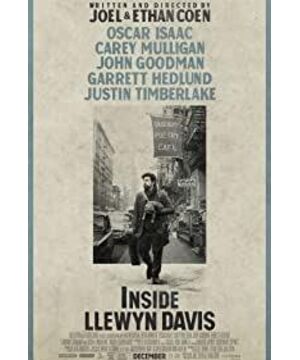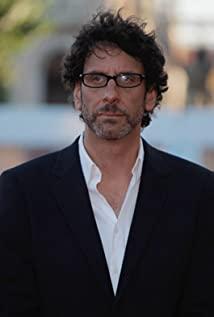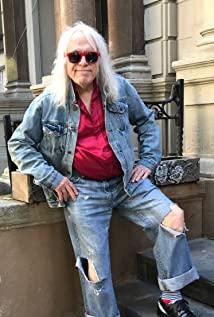Speaking of Van Junker, it is estimated that Bob Dylan’s diehard fans know that when Dylan first arrived in New York, Van Junk, who was also a teacher and friend, not only taught Dylan a lot of folk singing and singing skills, but also affected Dylan’s social and social Views of life, and when Dylan was as downhearted as the Llewyn in the film, it was Van Juncker who gave up the sofa for him... Decades later, shortly after Van Juncker’s death, Dylan also published a memoir, and there is no shortage of them. Nostalgia and gratitude to Van Junker.
The "Davis" in the fictional name of Llewyn Davis, I guess, borrowed from Gary Davis, the master of black folk songs from Fan Junker. Fan Junker sang a lot of the works of this "priest singer" in his early years. As for'Llewyn', which is said to be a Welsh name, it is inevitable that people think of the name'Dylan', which is also derived from Welsh. For this character, maybe the Coen brothers are acknowledging the importance of Van Junk's succession in the history of American folk songs. ?
But Llewyn Davis is not exactly Van Junker. Although he has never been a big hit, Van Junker is luckier than Llewyn Davis, who seems to be surrounded by loops and dead ends in front of him. Although in reality Van Junker has been a seaman for life, he has not encountered singing. His career has just started, and his partner committed suicide. His record "Inside Dave Von Ronk" has also received a lot of praise after its release, unlike Llewyn's album in the movie, which suffered from the neglect that no one cares about-Llewyn Davis's story more reflects the countless folk singers who had dreams and talents like him but did not get the chance of success behind a successful Bob Dylan.
The story is set in the "revival era" of American folk songs in the early 1960s-the McCarthy era had just ended, old folk singers began to be active again, and new folk singers have sprung up-but this is similar to Dylan and Joan Bay The "golden age" after becoming famous is not the same thing. But for most people, folk songs are just country folk music—not even music, just like the old jazz musician on the bus to Chicago. After hearing that Llewyn sang folk songs, he sneered and said: "Huh, folk?! I thought you were a musician..."
Like many young singers who suffered cold eyes, Llewyn picked up the guitar unconvincedly and sang a song "Green, Green Rocky Road" with complicated fingerings. Unexpectedly, no matter how hard he worked, the old jazz musician still couldn't sleep well, and the young poet only cared about driving himself. There was only the green and faint country road on both sides, as if there was no end to the country...
Speaking of this scene, I had to mention Cohen. The brothers have two striking designs in this movie: one is that almost all the music in the film is in the scene-what the audience hears is also the music that the characters in the film are hearing-which makes the music When it sounded, the audience seemed to be "invited" into the story; second, because traditional folk songs often have a strong narrative element, the story in the song and the experience of Llewyn outside the song can always echo together, making the plot seem very loose Movies have the interest of parallel narrative.
When Llewyn traveled all the way to Chicago and met the industry tycoon Bud Grossman, he sang the old ballad "The Death of Queen Jane"-the ballad said that Queen Henry VIII of England was giving birth to Queen Jane. The true story of a baby boy who died due to dystocia after Edward VI-singing such a song of "no commercial value" can only show that what Llewyn was worried about at the time was not to keep going, but The ex-girlfriend who may have given birth to her own child.
The prototype of this Bud Grossman was later Dylan's agent Albert Grossman. This man also dug into the husband and wife file Ian & Sylvia-perhaps the prototype of Jim & Jean in the film. As mentioned in the film, Albert Grossman also invited Van Junker to join a trio of folk songs he was forming (the successful Peter, Paul and Mary in the future), but was rejected by Van Junker, who was unwilling to compromise his music.
Just like Van Junker, Llewyn used a traditional and simple way to interpret the old folk songs-their way of playing and singing is rooted in the tradition that has been passed down for hundreds of years, retaining the roughness of the working people and the precipitation of history. Can't tolerate the slightest hypocritical modification-but in the fast-paced modern city, it is difficult for this kind of music to be recognized by the market-audiences prefer Jim & Jean, and the kind of experience sung by the soldier Troy Carefully polished, catchy "New Folk Songs". Llewyn, who couldn’t find an audience, even brought his guitar when visiting his father who had lost the ability to communicate, and sang a fisherman’s ballad "Shoals of Herring"-but his father could no longer give him his praise, and Llewyn was destined to only Continue to walk alone on the road of music.
Back on the stage of the folk bistro, he sang a self-deprecating song "Hang Me, Oh Hang Me". This song tells about a man who wandered around and became a robber when he was destitute and was eventually arrested. , Hanged-the lyrics sang "I am not afraid of being hanged, I just sigh that it is too boring to sleep for a long time, I am a man who travels all over the world"-running around did not find a chance for Llewyn's fate, but he was afraid of , Is a life without music, will become like a father's numb "existence".
Just like "Hang Me", no matter how painful and embarrassing life is, folk songs will always be stoic and optimistic when they are sung. Llewyn finally sang "Fare Thee Well" alone in the film, which he used to sing with his companions—maybe this is the last time he bid farewell to his companion who committed suicide, or he was saying goodbye to the unbearable past, no matter what What? We heard his strong heart. At the end of the film, after a few punches, he still reluctantly said "goodbye" to the person who beat him half-jokingly, which made us believe that he will continue to walk. Sing on. What makes everyone more gratified is that filmmakers like the Coen brothers who have persisted in their own style for many years can make such a sincere and moving film for all artists who insist on themselves but have not been applauded.
Article/Liu Yusi's
press: Film reviews provided for "Popular Films", please do not reprint without permission.
View more about Inside Llewyn Davis reviews











